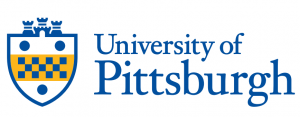Sperm Banking (Semen Cryopreservation)
| PROCESS |
|
| TIME FRAME |
|
| SUCCESS RATE |
|
| RISK |
|
| COSTS |
|
| LONG-TERM IMPLICATIONS |
|
| OTHER CONSIDERATIONS |
|
Testicular Tissue Freezing (Testicular Tissue Cryopreservation)
PROCESS
|
| TIME FRAME |
|
| SUCCESS RATE |
|
| RISK |
|
| COSTS |
|
| LONG-TERM IMPLICATIONS |
|
| OTHER CONSIDERATIONS |
|
Egg Freezing (Oocyte Cryopreservation)
| PROCESS |
|
| TIME FRAME |
|
| SUCCESS RATE |
|
| RISK |
|
| COSTS |
|
| LONG-TERM IMPLICATIONS |
|
| OTHER CONSIDERATIONS |
|
Embryo Freezing (Embryo Cryopreservation)
| PROCESS |
|
| TIME FRAME |
|
| SUCCESS RATE |
|
| RISK |
|
| COSTS |
|
| LONG-TERM IMPLICATIONS |
|
| OTHER CONSIDERATIONS |
|
Ovarian Tissue Freezing (Ovarian Tissue Cryopreservation)
| PROCESS |
|
| TIME FRAME |
|
| SUCCESS RATE |
|
| RISK |
|
| COSTS |
|
| LONG-TERM IMPLICATIONS |
|
| OTHER CONSIDERATIONS |
|
Lupron (Ovarian Suppression)
| PROCESS |
|
| TIME FRAME |
|
| SUCCESS RATE |
|
| RISK |
|
| COSTS |
|
| LONG-TERM IMPLICATIONS |
|
| OTHER CONSIDERATIONS |
|
Testicular Sperm Extraction (TESE)
| PROCESS |
|
| TIME FRAME |
|
| SUCCESS RATE |
|
| RISK |
|
| COSTS |
|
| LONG-TERM IMPLICATIONS |
|
| OTHER CONSIDERATIONS |
|
Chemotherapy and radiation treatments for cancer or other conditions can cause permanent infertility. The effects of therapy on fertility are drug and dose dependent. Alkylating drugs (e.g., busulfan and cyclophosphamide), whole body radiation and radiation to the gonads are particularly damaging to fertility.
To aid in counseling patients about the reproductive risk of their treatment we use the Cyclophosphamide Equivalent Dose (CED) calculator described by Dan Green and his colleagues at St. Jude Children’s Research Hospital and the Childhood Cancer Survivor Survey (Green et al., 2014). The Fertility Preservation Program in Pittsburgh considers a CED of 4000 mg/m^2 to be associated with a high risk of infertility.
Radiation treatments (and doses) associated with infertility are listed in a table at the bottom of the page.
Radiation Doses
| Total body irradiation (TBI) | All doses |
| Cranial radiation | > 40 Gy |
| Testicular radiation | > 2.5 Gy in men |
| > 6 Gy in boys | |
| Whole abdominal or pelvic radiation | > 6 Gy in adult women |
| > 10 Gy in post-pubertal girls | |
| > 15 Gy in pre-pubertal girls |
References
- Green DM, et al. (2014) The cyclophosphamide equivalent dose as an approach for quantifying alkylating agent exposure: a report from the Childhood Cancer Survivor Study. Pediatric Blood & Cancer 61(1):53-67.


